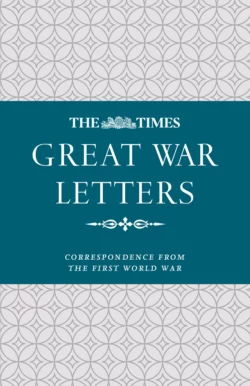The Times Great War Letters: Correspondence during the First World War

James Owen и Samantha Wyndham
Тип: электронная книга
Жанр: Социология
Язык: на английском языке
Стоимость: 1535.63 ₽
Статус: В продаже
Издательство: HarperCollins
Дата публикации: 17.04.2024
Отзывы: Пока нет Добавить отзыв
О книге: The Times has the most famous letters page of any newspaper. This selection spanning the years 1914-1918 shows precisely why. While many letters relate to issues around the Great War, there is room for a myriad of subjects concerning the great British public of the time which capture the mood of the nation at this key period in British history.Since 1914 the Times’ Letters page has taken the temperature of the British way of life and provided a window on the national character. This series of correspondence captures the mood of the nation up to the end of the Great War.